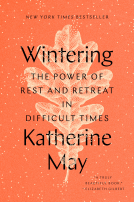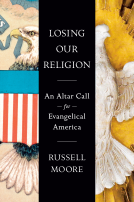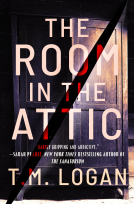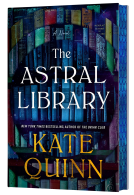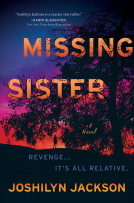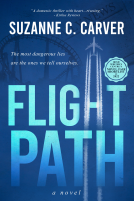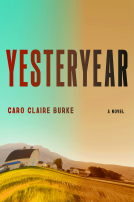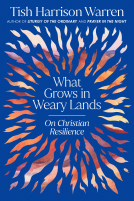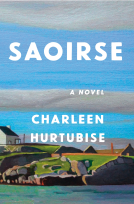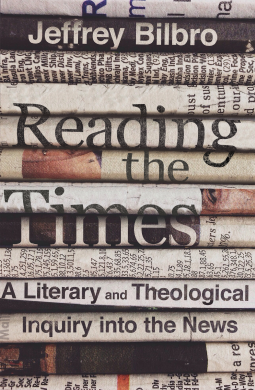
Reading the Times
A Literary and Theological Inquiry into the News
by Jeffrey Bilbro
This title was previously available on NetGalley and is now archived.
Send NetGalley books directly to your Kindle or Kindle app
1
To read on a Kindle or Kindle app, please add kindle@netgalley.com as an approved email address to receive files in your Amazon account. Click here for step-by-step instructions.
2
Also find your Kindle email address within your Amazon account, and enter it here.
Pub Date Jun 08 2021 | Archive Date Jul 07 2021
InterVarsity Press | IVP Academic
Talking about this book? Use #ReadingtheTimes #NetGalley. More hashtag tips!
Description
Christianity Today Book Award
The Gospel Coalition Book Awards Honorable Mention
Foreword INDIES Book of the Year Award Finalist
ECPA Top Shelf Book Cover Award
"Reading the morning newspaper is the realist's morning prayer."—G. W. F. Hegel
Whenever we reach for our phones or scan a newspaper to get "caught up," we are being not merely informed but also formed. News consumption can shape our sense of belonging, how we judge the value of our lives, and even how our brains function. Christians mustn't let the news replace prayer as Hegel envisioned, but neither should we simply discard the daily feed. We need a better understanding of what the news is for and how to read it well.
Jeffrey Bilbro invites readers to take a step back and gain some theological and historical perspective on the nature and very purpose of news. In Reading the Times he reflects on how we pay attention, how we discern the nature of time and history, and how we form communities through what we read and discuss. Drawing on writers from Thoreau and Dante to Merton and Berry, along with activist-journalists such as Frederick Douglass and Dorothy Day, Bilbro offers an alternative vision of the rhythms of life, one in which we understand our times in light of what is timeless. Throughout, he suggests practices to counteract common maladies tied to media consumption in order to cultivate healthier ways of reading and being.
When the news sets itself up as the light of the world, it usurps the role of the living Word. But when it helps us attend together to the work of Christ—down through history and within our daily contexts—it can play a vital part in enabling us to love our neighbors. Reading the Times is a refreshing and humane call to put the news in its place.
Advance Praise
"I am so grateful for a book that steps back from the flash and distraction of headlines to think deeply about the purpose of the news and how Christians are called to engage. In Reading the Times, Jeffrey Bilbro provides readers with a theological framework for our contemporary discourse. He offers examples from the tradition, from the Old Testament to modern heroes of the faith, such as Frederick Douglass and Dorothy Day, that we might apprentice ourselves, as Bilbro puts it, before these models. Like a teacher, Bilbro questions readers about our ways of responding to media, and he leads us to consider how our participation with contemporary news forms us and our community. By contextualizing our reading of the news within kairos, Bilbro shows Christians how, as T. S. Eliot writes, 'to apprehend the point of intersection of the timeless with time.' A relevant and timeless book about how Christians should belong in but not of this world."
-Jessica Hooten Wilson, Louise Cowan Scholar in Residence at the University of Dallas, author of Giving the Devil His Due: Flannery O'Connor and The Brothers Karamazov
"Jeffrey Bilbro's Reading the Times makes a compelling sweep of material, technological, and philosophical history, helping Christians ask pressing contemporary questions: How do we attend faithfully to the news? To what political, moral, social, and spiritual ends do we scroll Twitter, check Facebook, and scan the morning headlines? Attention deficit, hyperpartisanship, and misinformation are familiar problems in our current media landscape, but Bilbro goes beyond these standard diagnoses. In the Augustinian tradition, he examines not just media consumption but media appetite. I find his work both practical and prophetic: one foot in chronos, one in kairos, Bilbro begs us to fight for better media habits and rightly ordered media loves. I hope people will gather together around these pages and attend to them slowly, prayerfully, resolutely."
-Jen Pollock Michel, author of A Habit Called Faith and Surprised by Paradox
"Reading the Times is essential reading for today's Christian. Jeffrey Bilbro helps us recognize the philosophical and epistemological narratives underlying current headlines and debates, and he gives his readers a deeper understanding of the life we're cultivating for ourselves when we pick up our newspapers or scroll through our news feeds. Centered on the gospel and its timeless beauty, this book proffers a far better vision for our news consumption and public witness, showing us how we can begin to cultivate sound minds and lives of grace."
-Gracy Olmstead, journalist and author of Uprooted: Recovering the Legacy of the Places We've Left Behind
Available Editions
| EDITION | Other Format |
| ISBN | 9780830841851 |
| PRICE | $28.99 (USD) |
| PAGES | 208 |
Average rating from 13 members
Featured Reviews
 Conrade Y, Reviewer
Conrade Y, Reviewer
A few decades ago, we receive news via the radio or the daily printed newspaper. We hear the daily digest or news bites with the radio and for more details, we open up the editorial pages or the news reports for both local and foreign news. Then comes the Internet. Our hunger for news and information remains but the medium we use differs. This also coincides with the cellphone revolution accompanied by the rise of social media platforms. The new technological landscape has also broken up the dominion of the humble newspaper or printed magazines. Now, we read news snippets via short texts such as Instagram, Tik-Tok or Twitter; and longer pieces via blogs or websites. For information that matters to friends, we might opt for FaceBook. We look for jobs via LinkedIn, read books on electronic devices, do quick updates on Twitter, and watch videos on YouTube, and many more. When freedom of the press meets freedom of individual expression, everybody becomes a reporter, an editor, and sometimes, an expert. In such a decentralized environment, it becomes more challenging to sieve out the truth from falsehood. Even celebrity gossip and news opinions have become so decentralized that the world sees only specific angles from any one social media user. On the topic of news, Bilbro raises several specific questions on reading the news. Underlying these is a growing awareness that our daily habits are more effective than what we say or believe.
What do we need to know on how to love our neighbours?
What do we need to attend to on faithful living in our present era?
How do we experience time?
How should we belong to one another?
Part One of the book describes the present news landscape and why they are inadequate for neighbourly living. Bilbro begins with Thoreau's insights of a "macadamized mind," a mind that reeks of fragmented attention, susceptible to advertising gimmicks, and inability to sympathize with neighbors. He traces how "attention" is linked to the same Indo-European roots that mean "to stretch." The danger is that our minds could be altered when we allow them to attend to trivial things. He helps us understand this attention via the example of Marc Chagall's "Solitude" which is a visual expression on one who meditates on the Law day and night. In contrast to the fleeting images of our modern world which comes and goes, meditation is a spiritual discipline that helps us focus and remain rooted in something bigger than ourselves. This calls for cultivating habits of attention and discipline such as avoiding checking social media first thing in the morning or having the TV constantly running throughout the day. Refuse intellectual candy or temporal gratification. Differentiate between satisfying our appetites versus fulfilling deep longings. Filled with suggestions on how to improve our attentiveness, readers will be challenged to go against the status quo of reading modern media uncritically.
Part Two offers a theological response. Part Three suggests some practical ways in which we could read news constructively and respond appropriately. This calls for a paradigm shift from seeing time merely as chronos time but kairos time. This is like observing clock time vs compass time respectively. The former just go through the motions of the day while the latter learns to keep pace according to the level of importance and sense of call. Bilbro fills us in with historical examples that go beyond mere liberalism vs conservatism or the political left vs right battles. Truth is, both sides have glimpses of what is true plenty of biased news that tend toward falsehood. It takes a discerning mind to tell the difference. Gradually, we are guided toward the holy significance of kairos, that the "arc of history" is tilted not toward Roman nor liberal regimes, but captive to the risen Word. He calls us Christians not to replace the Word with the world. They should also resist substituting morning prayers with the newspaper. These are basic practices for the Christian to remain attentive to God's kairos.
Part Three deals with our interactions with the public. Bilbro reminds us that our tendency toward partisanism and superficial relationships is because of our lack of community. Our social belonging is increasingly being molded by the world, especially the news we hear and read. Bilbro sketches a history of how the different media technologies have changed our social links; how we unwittingly fall into the "rationalist delusion" and that truth is found mainly in the news we read or hear. If we are not careful, our "warped dependence" on the news of today will not only tear apart the social fabric of our remaining relationships, it would damage our own sense of perception about what is Truth.
My Thoughts
==============
This is perhaps one of the most important books ever written to pushback on the rising militancy of radical news and social media that feeds on an illusion of "moral majority." Marshall McLuhan's "The Media is the Message" has become more pronounced than ever. The fear is that the media has evolved beyond mere message but is masqueraded as Truth. For believers to spend more time on social and mass media would be indoctrinating themselves subconsciously with the worldly values that seek to disenfranchise oneself and the community. News divides people easily into the left or the right. Even the most centralist person would tend to lean toward one side when pressed. We need to rise up against the falsehood of numbers or democratic overtures that put the benefit of the doubt on the majority. As we have known from the biblical story of the two spies (Joshua and Caleb) who said yes on entering the Promised Land, and the ten spies who said no, the majority is not always right. Jesus himself was in the minority. In fact, he was alone as he went to the cross. Standing up for the Truth is risky, and for Jesus, it is fatal. There is a raging battle going on right now. Christians need to wake up to this reality. They ought to wake up from any slumber and to be equipped with the tools as taught in the Scriptures. whether it is the armour of God, the fruit of the Spirit, the spiritual gifts, etc., the important thing is to be filled with God's Word amid the dizzying array of opinions and pluralistic thoughts. I am glad that Bilbro reminds us about morning prayers, the need to keep the Word above all else, and the practice of spiritual attention to God's timing. His liturgies of attention, of Christian time, and of Christian belonging form the trinity of what it means to read the times of today.
Of attention, he urges us to read beyond the times of today and to embrace the significance of eternity. That means learning to be patient and not be distracted by the sensationalism of the modern press. Learn to notice what is important. Learn to read well by cultivating an inner disposition toward significance instead of sensation. Of Christian Time, the first step is to recognize our patterns of dependence to chronos lifestyle. The next step is to move away from this paradigm toward biblical patterns. Appreciate art. Learn from history. Develop a discipline. Of Christian Belonging, take a walk to appreciate the nature of God's creation. Much of our world have been lived online, which is only a snippet of reality.
The famous German theologian Karl Barth used to say: "Take your Bible and take your newspaper, and read both. But interpret newspapers from your Bible." That is past wisdom that continues to be relevant today. While traditional mainstream media have been roughly divided into camps on the Right, the Middle, or the Left, it is more challenging to try to classify the diverse voices in social media. Perhaps, we should rise above all of these labels and let God speak. Let God be God and everyone else, liars. May this book be a powerful resource to equip more people to discern from the Bible about Truth. Then and only then, can we truly be set free. Whether one calls this book a wake-up call or a paradigm shake-up, every Christian who uses social media or consumers modern media should read this book. For many of us, it will wake us up to see the flaws of the news we consume. For some of us, we badly need a shakeup to start realizing that the Truth is not out there in the news but to be discerned with the Word of God.
Jeffrey Bilbro is an Associate Professor of English at Spring Arbor University and an editor at the Front Porch Republic.
Rating: 4.75 stars of 5.
conrade
This book has been provided courtesy of InterVarsity Press and NetGalley without requiring a positive review. All opinions offered above are mine unless otherwise stated or implied.
Readers who liked this book also liked:
Kate Quinn
General Fiction (Adult), Sci Fi & Fantasy, Women's Fiction


